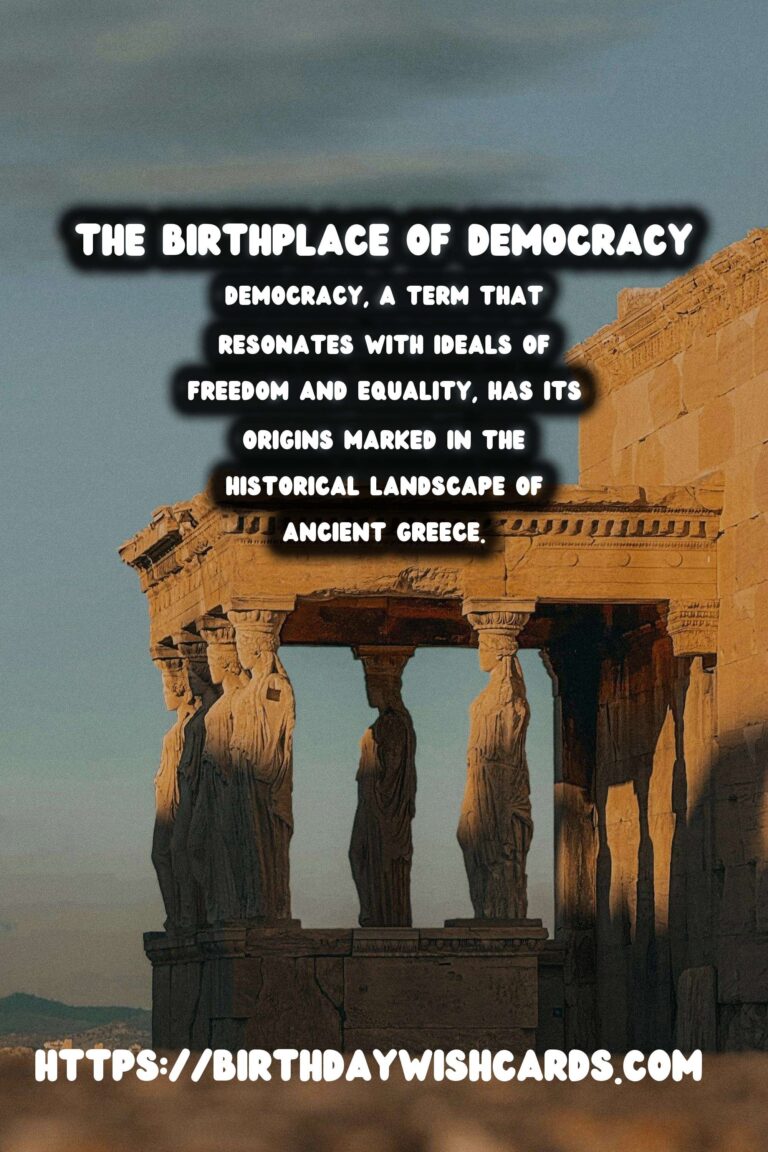
Democracy, a term that resonates with ideals of freedom and equality, has its origins marked in the historical landscape of Ancient Greece. Often celebrated for granting power to the people, democracy laid the foundation for various modern governance systems. Nevertheless, its journey from the Athenian assemblies to contemporary parliaments has been neither straightforward nor universally embraced.
The Dawn of Democracy in Ancient Greece
The roots of democracy can be traced back to the 5th century BCE in Athens, the cradle of Western civilization. Athens established a system where citizens could participate directly in decision-making. This nascent form of rule was radical for its time, as it emphasized the inclusion of the citizenry in governmental affairs, albeit limited to free males who were Athenian-born.
Famous philosophers like Socrates, Plato, and Aristotle critiqued and analyzed the Athenian democracy extensively, contributing to political theory as we understand it today. Despite its progressive nature, Athenian democracy was not without flaws; exclusionary practices meant women, slaves, and non-citizens were left out of the democratic process, highlighting its limitations.
Challenges Faced by Ancient Democracy
While Athenian democracy is often idealized, it faced numerous challenges. Internal conflicts, such as the Peloponnesian War, tested its resilience. Additionally, the system struggled to manage the balance between democratic freedom and effective governance. The lack of representation for significant portions of the population also cast a shadow over its legacy.
Furthermore, decision-making was highly dependent on a well-informed citizenry, which was not always attainable. The absence of checks and balances sometimes led to mob rule, where populism overtook rational governance, demonstrating that even in its birthplace, democracy had to grapple with substantial issues.
The Legacy of Ancient Democracy
Despite the challenges, the Athenian model left an indelible mark on history. It inspired subsequent generations and cultures to pursue more inclusive forms of government. The Renaissance and Enlightenment periods saw the revival and evolution of democratic principles, which eventually influenced the formation of modern democracies worldwide.
The American and French revolutions are notable examples where the legacy of ancient democracy played a pivotal role in shaping new political ideologies. These movements sought to rectify the issues seen in the past by advocating for broader participation and protecting individual rights.
The Evolution of Democracy
The transformation of democracy from a direct to representative form addressed several of its inherent limitations. Modern democracies attempt to balance the participation of citizens with the practicalities of governance through elected officials, protecting minority rights, and establishing legal frameworks that ensure equality.
Nonetheless, contemporary democratic systems are not without their challenges. Issues such as political polarization, misinformation, and uneven participation continue to test the resilience and adaptability of democratic institutions globally.
The Future of Democracy
As we advance further into the 21st century, the quest to refine democracy persists. Technological advancements present both opportunities and challenges in protecting democratic ideals. From online voting systems to the influence of social media, the landscape is continually shifting.
The global rise of authoritarian regimes and the increasing disenchantment with democratic processes pose significant threats, yet they also underscore the need for constant vigilance and reform. Only by addressing these challenges can the promise of democracy—granting power to the people—be fully realized.
It is vital to remember that democracy, though flawed, remains one of the most potent instruments for fostering justice, peace, and human dignity. Its success lies in the continuous striving for a more inclusive and representative governance system.
Democracy, a term that resonates with ideals of freedom and equality, has its origins marked in the historical landscape of Ancient Greece. The roots of democracy can be traced back to the 5th century BCE in Athens, the cradle of Western civilization.
#Democracy #PoliticalHistory

